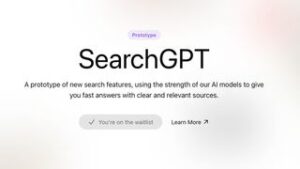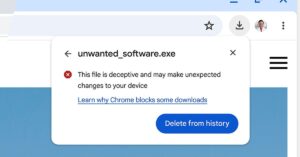/cdn.vox-cdn.com/uploads/chorus_asset/file/23954509/acastro_STK459_11.jpg)
With only weeks until Election Day, the Republican National Committee is escalating its war over Gmail’s spam filters in what critics deem a bad-faith effort to bully Google into letting them spam user inboxes.
The GOP has long complained about tech bias, but the latest fight hits the organization’s fundraising apparatus directly. In response, Google has launched a controversial program allowing campaign committees to effectively opt out of spam filters — a huge concession to mounting political pressure from Republicans. But Verge reporting shows the RNC has not taken advantage of the program and made few efforts to alter the core practices that might result in their emails being labeled as spam.
A source familiar with the matter confirmed to The Verge that, nearly a month after the pilot’s launch, the RNC has not joined or even applied for the program, even as the party continues to mount political and possibly legal pressure against Google. The RNC did not respond to multiple requests for comment regarding the committee’s decision to abstain from the pilot program.
The decision is remarkable because of the intense pressure placed on Google to find a way to protect Republican fundraising emails. The concerns came to a head in March when North Carolina State University published a study finding that Gmail’s spam-filtering algorithms disproportionately flag messages sent from conservative political senders. Seizing on the study’s findings, Republicans staged a party-wide pressure campaign against Google, accusing the company of purposefully silencing conservative messages and restricting their ability to raise money online. (In May, the study’s authors claimed their findings were being misinterpreted by the GOP.)
This partisan outrage resulted in top Republican lawmakers summoning Google executives for closed-door meetings over the summer to discuss the issue. In June, Sen. John Thune (R-SD) went as far as introducing a bill, backed by GOP heavyweights like Minority Leader Mitch McConnell (R-KY), essentially banning email providers from filtering out any spammy messages from verified political senders.
“Eligible committees that will comply with strict security requirements and best practice standards can now register to participate in this pilot program approved by the Federal Election Commission”
Ultimately, Google caved to the pressure in September, rolling out a new pilot program allowing candidates, political party committees, and other verified political groups to bypass Gmail’s spam filter. Democratic Party officials and strategists bemoaned the move, arguing that the program only encouraged Republicans to continue leveraging “abusive fundraising tactics.” But if the RNC declined to even apply for the program, it suggests the problem goes deeper than a supposedly biased spam filter.
Reached for comment, Google declined to address the specifics of the RNC’s claims but framed the anti-spam program as both limited and preliminary. “Eligible committees that will comply with strict security requirements and best practice standards can now register to participate in this pilot program approved by the Federal Election Commission,” said Google spokesperson José Castañeda in a statement on Thursday. “We expect to begin the pilot with a small number of campaigns from both parties and will test whether these changes improve the user experience, and provide more certainty for senders during this election period.”
Notably, in the initial terms of the program, Google said it would remove any participant whose emails are consistently flagged as spam 5 percent of the time. Participating groups are also required to meet certain security and bulk sender best practice standards. If the RNC believed it couldn’t meet those standards, it might explain why the committee decided not to apply.
Still, the frequency and content of the RNC’s fundraising emails could violate many of these best standard practices participants must follow, Democratic strategists and fundraising specialists told The Verge last week. Civic Shout CEO Josh Nelson specifically pointed to the intimidating language of recent fundraising emails, often sent more than 10 times a day. “That kind of volume, combined with the nasty and threatening tone of the message, is almost certain to offend supporters and lead to deliverability problems,” said Nelson.
“That kind of volume, combined with the nasty and threatening tone of the message, is almost certain to offend supporters and lead to deliverability problems”
The volume of emails sent to individuals by the RNC has risen steadily as the midterms approach, according to data collected by the Archive of Political Emails and viewed by The Verge. Throughout 2020, the organization sent only one or two emails in a day — but by the end of the next year, it was common to see more than 10 emails in a single day and still increasing. For October 2022, the data shows 80 different fundraising calls sent in just the first seven days of the month.
The content of the RNC’s messages can also resemble spam, using misleading subject lines, excessive punctuation, and intimidating language around deadlines to encourage donors to send money immediately upon receiving the message. As part of the January 6th hearings, congressional investigators argued that former President Donald Trump raised more than $250 million for an Election Defense Fund to overturn the 2020 election results that never existed. While the money went to Trump and not the RNC, the committee often structures its emails in a similar style to the Trump campaign.
For some Republican strategists, Google’s pilot program creates more problems than it solves. “I view Google’s verified sender program as more of an exercise in PR than actually addressing the issues or concerns of political email senders,” Eric Wilson, a GOP strategist and former digital director for Sen. Marco Rubio’s 2016 presidential campaign, said in an interview last week. “You bypass spam one time, and then everyone who receives that email, whether they’ve opted in for it or not, gets a big button that says, do you want to unsubscribe?”
Joining the program so late in the election cycle could be a risky move for Republicans, especially as they try to refill their war chests after an unforeseen slowdown in small-dollar donors over the summer. To GOP campaign arms like the National Republican Senatorial Committee, the program itself is “unacceptable.” In a draft letter to Google in August, the NRSC argued that campaigns should be allowed to “reset” their email domains in order to restore “their email reputation and allowing emails to go to Gmail boxes.”
In a Fox News story last week, the RNC claimed that Google suppressed more than 22 million fundraising and get-out-the-vote emails in September alone. In that same story, the RNC also confirmed that it only updated its message “segmentation to factor in recency of click, petition signature, and donation” last month. Email segmentation is standard for both political and commercial email programs, taking into account how often a recipient engages with messages before sending the email to them at all. (The RNC did not respond to requests for comment to clarify its email segmentation practices.)
“It’s absolutely standard practice and has been for over a decade to suppress what we call the ‘inactive people.’ Maybe they haven’t actually gotten around to unsubscribing, but they’re not really interested anymore,” Will Bunnett, principal at the digital firm Clarify Agency, said, describing the practice. “If the RNC just started doing that, they’re well over a decade behind.”





